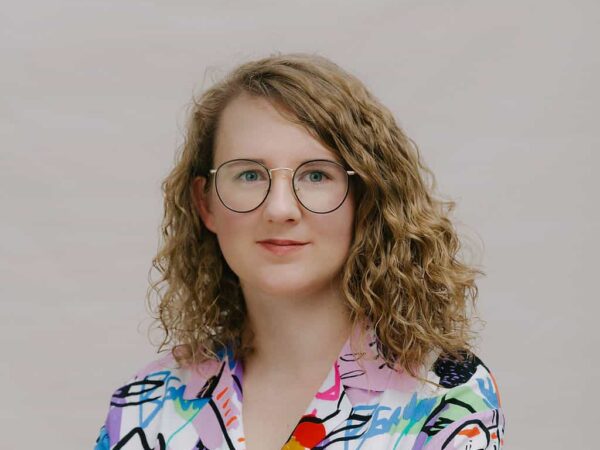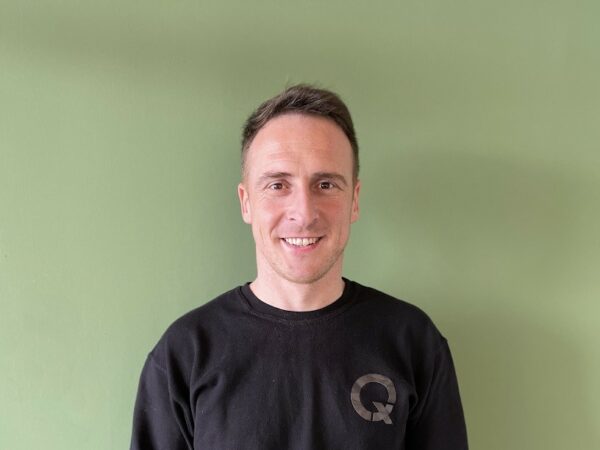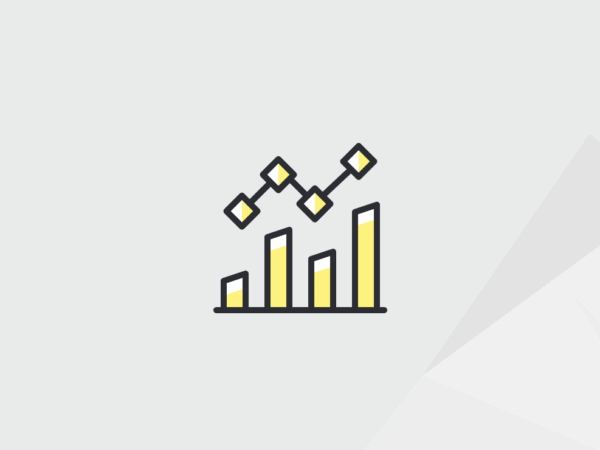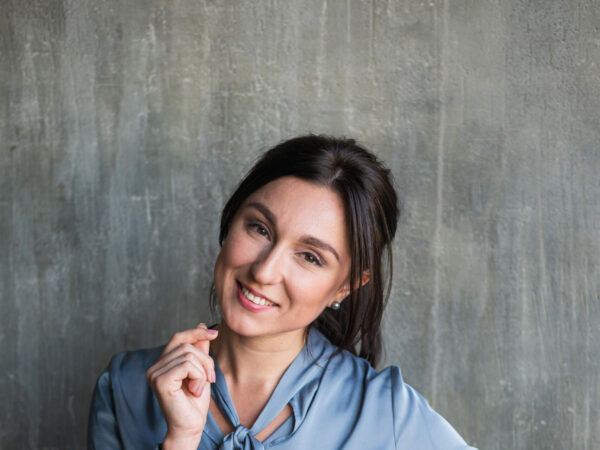On 20th of May 2021, Raiffeisen Bank Aval in Ukraine organized an event called Tech Talks. During the event, one of the goals was to interview Ukranian startup founders on their Market entry strategies.
Listen below to the personal views and opinions of startup founders (Fairo, Corefy, Spokk) participating in the event, about their startups’ business models, their plans for the future, challenges they face while planning expansion to other markets, and how they plan to overcome them.
Transcript of the video
Dmitriy (host): Hello, dear colleagues, dear audience! Today we are talking with colleagues who represent different and very interesting startups. Before we start our conversation I’d like to congratulate everyone on The Banker’s Day and The Vyshyvanka Day. Congratulations!
Now, dear colleagues, I’d ask you to introduce yourself. Elena, Denys, Sasha, tell us about yourselves.
Elena Khlon: Hello everybody, thank you for having me. My name is Elena Khlon, I am the CEO of Fairo in Ukraine. This is a project, which was launched thanks to efforts and ideas of RBI. Creative Dock Austria has developed this project and our only Bank partner is Raiffeisen Bank Aval in Ukraine. What is Fairo about? In short, it is about making entrepreneur’s life easier. To know more about details, you can ask me later or visit our web site. What about me, I am a business developer with 10+ years of experience in fintech, retail, banking and tech consulting. I worked in Ukraine, Asia (Vietnam), Southeast Europe. I came back to Ukraine last year and very glad that in October 2020 I joined Fairo project. We build up business from scratch – this is very fascinating and dynamic. Glad to be here and share my experience.
Dmitriy: Thank you. Denys?
Denys Melnikov: I congratulate everyone. My name is Denys Melnikov, I represent company Corefy – this is a payment platform for online businesses and payment institutions. Currently we have over 110 integrations with payment providers and acquirers around the world. We are based in Kyiv and in our team there are 60 employees. I also lived and worked abroad. Today we are building international business in partnership with a number of banks, but not only with them, because we are more about payment system itself. But, if we are talking about Ukraine, I think, we have 95% integrations with all market players.
Dmitriy: Cool, we’ll talk about it in detail a bit later. Sasha?
Aleksandra Gladyshevska: Thank you for invitation, colleagues. My name is Aleksandra Gladyshevska, I am the CEO and co-founder of startup Spokk – we insure cats and dogs. It sounds a bit funny, we are frequently asked if it is possible to make money on it. I’d admit, yes, it is possible. I hope our competitors do not rush into this market now. In fact, our big strategy and big idea is to become an insurer in a smartphone. In other words, when our clients would not have an idea to search an insurance on Internet, select partners, read conditions themselves. Customers have the application in smartphones, then find and choose the type of insurance they need. For example, at an airport the customer remembers he has no a travel insurance, in this situation the customer opens application, clicks I need a travel insurance. He insured himself while standing in the line for boarding. This is our ideology, that is what we aim at, what we do. We have started with cats and dogs, but in the future it will be a big platform with different types of insurance.
Dmitriy: Listen, that’s interesting. Tell us a few words about your plans to enter European market, you business model in 3-5 years horizon.
Aleksandra: Currently we plan, first, our next market to enter – USA, for a lot of reasons. Pets’ insurance – it is a huge market in USA, this is 3 million dollars. This is just only 3-4% insured pets, it means there is a big potential and this is the largest increase in this market among all types of insurance. In other words, this is the top among all types of insurance for today. As for Europe, we do not plan enter that market right now, we understand that it will happen sooner or later, but we will start with USA just because for us it will be easier to enter European market from USA, than from Ukraine.
Dmitriy: I see, thank you. Ladies first. Lena, what are your plans about new markets?
Elena: I’d rather say what are our plans. I am in charge of Ukrainian market and development of Fairo in Ukraine. I know that Raiffeisen group plans to enter other markets with this project, with this idea. The next approved market is Romania. I do not know about other markets, but know that they are under analysis. But Romania is the following market, which is almost at pilot stage already, the first non-banking services will be launched for Romania’s freelancers and entrepreneurs this summer.
Dmitriy: If I ask you about your ambitious. Would you see coverage all over Europe or some countries and regions?
Elena: I see that the idea Fairo is needed by the whole world, because what we do and build now is an application all-in-one. It is a kind of ecosystem for entrepreneurs with already registered businesses, but a registration of a business may be done in our application. In other words, there are many ideas and we need to manage to develop and technically support them, because everything must fly, taking into account that Fairo is available only on smartphones. Therefore, as an idea, as a goal that we pursue, it will be put to good use in various countries of Europe, because Raiffeisen is a European group. But I think that Asia should not be ruled out now. However, these markets are not part of the analysis currently. Romania, definitely, is, but I think that these, actually, global ambitions could be realized in various countries.
Dmitriy: Ok, let’s come back to this later. I like the part about scaling and that everything must fly. Denis, how do you see it, starting business in Europe?
Denys: We originally were without borders. We work in B2C segment. Our customers are large merchants, large online businesses and payment institutions, systems often licensed or running in other models. Therefore, we are a little limited here, because we need to communicate at certain business time, for example, from 8 a.m. to 8 p.m., so now we have 2 offices, in London and Kiev, so now we work mainly with Europe. But I agree with my colleague that Europe is a very difficult market. First of all, it is very fragmented not only in terms of languages, cultures etc. if you want to sell in Germany, you need German employees, in Spain – Spanish employees, in Czech Republic – Czech employees. Today the sales team must be international to work with B2B businesses. It is difficult to work with German people in English – at some stage they are ready to work that way, but with operating part it is going harder. I agree, that USA is a global market with high competition, you have to go there ready, with a validated business model, with understanding that you start spending money and you will continue spending it. You need to do everything quickly and very quickly.
Dmitriy: Interesting, we have three completely different directions – platform, application and service. I’d like to talk about products – each direction is on the market for a different period of time and nevertheless it seems like a startup. It is more usual for us that if you have lived for a couple of years, then it is already an LLC company or something else. Why can you call yourself still a startup, and not some well-established company? Sasha, let’s start with you.
Aleksandra: there is a classical definition of what a startup is. The main basis on business model – startup is a company, that tests business model for growth rate. If business model is growing very quickly, then this is a startup. If it grows very slowly, by about 10% per year, this is a classic business or a lifestyle business. And why we are a startup – we have defined it this way for ourselves, because we are looking for the very business model that will grow not by 10, not 100, or even 500% per year, but much faster, much more. But when we started our story, we met on Friday evening over a glass of wine and began to discuss with colleagues what can be changed in insurance, we decided to try this Model, but at that moment when we started we did not even know that it was called a startup. We were told that this is a startup later in the accelerator. We learned that we are completely different guys, that we are not a classic business and we had to accept this and, accordingly, these are absolutely different scales, different speeds, and this means much more sleepless nights than in a classic business.
Dmitriy: Thank you. Denys?
Denys: We initially knew that we were a startup. Our product is professional. If you are interested in money you can not just as a software vendor come to the market and say maybe, I will develop something for you in two years, right? You come with your product and start trying to sell it, find first customers. That is why for almost two years we had been developing the product without customers, just with a vision of where we need to go. It was a difficult stage, because when you develop without knowledge and deep understanding of the customer’s needs, it seems to you that this is very necessary and that is very necessary. Then you meet with the first customer and he says that I need this. You say that we do not have this now, sorry, and we will be back in three months.
Dmitriy: Interesting. Lena, how about you?
Elena: Less than a year has passed from the idea that Fairo is some kind of product or service necessary for freelancers without reference to any country – the idea arose in February 2020 in the RBI group, and in July the first services of non-banking applications were already launched. For a pandemic time, when all teams work in different countries, this is high speed. Then the launch of the banking service together with the Aval bank was at the end of April. The launch was postponed for various reasons. One of the reasons is that we stopped and we needed to work out the security standard, because initially the service was launched as a non-banking service, then we launch the banking part, respectively, the emphasis on the security of the application data as a whole needed to be made stronger. Therefore, it has changed a bit our plans to launch the banking module. Considering that we work in the Agile format, every two weeks new features and functions of the application are rolled out and in fact every two weeks the customer sees either improvements or additional functions. It is incredible speed of moving. Therefore, for us it is still a startup, given that from theory to practice we went through some stages that Denis spoke about, that what the customer needs may not match what we have developed in theory. Now we have launched the banking part together with the non-banking one – our idea is that the application is all-in-one for an entrepreneur and how it practically attracts a customer or does not, what else does a customer need. These are again new sprints, features and additions to the application, so we have not yet checked what exactly will attract a customer and when there will be a growth trend of 500% or some % per annum. We are still in the stage of analysis, hypotheses, and this is an incredibly interesting process, because we are testing a lot of things in practice. We add, update – the speed is incredible. This is a startup mode that we are currently living in.
Dmitriy: Listen, that’s cool. I share a lot you have said about. We also try to apply a lot – two-week sprints and sessions, design thinking. And it’s great to see that compared to the classic waterfall programming approach, when you develop for a long time, it is faster. If we talk about business plans, business growth, everyone wants to develop. Do you see the problems associated with scaling a business, sales team?
Denys: I want to continue the thought that nothing motivates you as much as a lack of money or a reduction in money that you have to invest in development, in our case it is about our own money. Therefore, it motivates you to do much faster. Startups work much more – 10-12 hours a day, seven days a week without days off, because the only resource you can manage is your time, that is it, the rest are slowly decreasing until the moment you go to prod. The second point is that many companies do not stop being startups. For example, Strip. For example, they still call themselves a startup because they are growing fast. This is a model, the longer it is in this stage, the better, because the business scales quickly. Every startup has several stages. For example, you have a product and you work on the product market fit, in other words, you come up with a product, test it and it will either succeed or not. If it succeeds, we will continue working. Sasha has a different situation – they understand the product, have a product vision, she is more concerned with development, growth. The main thing is the number of insurances, money. We are almost at the same stage when we have a clearly understandable product, we have been in live mode for more than two years, we had 108 million transactions last year. This year we expect 200 million or 250 million successful transactions. That is why we are now looking more for our audience, with which it is easiest for us to work. This is more about scaling, we want to choose a niche for ourselves in which we will grow as quickly as possible.
Dmitriy: You said, that you want to find the audience you can work easiest with. Maybe, it might be worth looking for an audience that will find it easier to work with you? How do you look for an audience, define it.The segment is clear. I’ll definitely try.
Aleksandra: Firstly, we thoroughly studied our colleagues in the American insurtech market. There are not so many European ones in Europe, surprisingly, you can count on the fingers of two hands, but many in USA. We studied the audience they target at. We looked at the trends and made customer development research. We interviewed different people – both with insurance companies and with individuals, asked them questions – what do you dislike about insurance and what do you like. Under what conditions would you buy more insurance products, what products do you lack. It’s important to ask multi-choice questions here.
Dmitriy: Have you asked questions through the prism of your direction?
Aleksandra: We decided on the first Pet Insurance product later, when we asked all these questions, plus we analyzed market data, looked at who our audience is, what interests it and which product will be most relevant to it. We determined that these are mainly young people from 25 to 35 years old, residents of large, million-plus cities, with higher education, who work for big business. People who are used to online financial services, including to ordering through Glovo services, when you pay by card, even this is our audience. Next comes the specification for specific products. If we talk about pet insurance, then this person should have a cat or a dog. We made an interesting conclusion – last week we looked at the pool of our clients to determine how much our current audience matches the one we predicted. An interesting fact – 90% of our audience are women. This tells a lot about gender things and insurance in general. I think the safety search factor is triggered. In Maslow’s pyramid, this is the second element, for women, apparently, it is more important than for men.
Dmitriy: I would argue – for me it is more about empathy and care, I have a dog – the main thing for me is to feed and walk my dog. I am a guy and he is a guy. But to surround with care, to hug … probably this is different. Lena, colleagues have their own interests in finding an audience, launching products. You have a more classic segment – mobile application, entrepreneurs. How did you look for an idea, an audience, or was everything clear and you just had to move on? How did you do this?
Elena: Do you mean how we were looking for an idea?
Dmitriy: Yes, idea, audience. How did you do this?
Elena: As for the search for the target audience, when the freelance segment was chosen, of course, an analysis of the growth of different categories of the target audience was made. It is important to talk about the terminology, because freelancers are sometimes perceived as people who have not registered their businesses, and run grеy or shady businesses – they receive income, but do not pay taxes. We are aimed at the audience of registered individual entrepreneurs, now our target audience is specifically the third group of individual entrepreneurs. Ukraine was not chosen by chance, because the growth of entrepreneurs in Ukraine represents almost the highest percentage in Europe and holds the third place in the world. This is due to the fact that Ukrainians want to be more independent, creative, there is a huge IT segment and this segment was chosen as our audience – designers, developers, who work with foreign clients and they need to have a bank plus the administration of their business in their pocket, in a smartphone. That is why the choice was made only in favor of the mob application, because the target audience is tech-savvy people of 25-35 years old and now we see a different reality. We see that it is far from only 25-35 people who use it, mobile applications, especially now. As we launched during a pandemic, everyone goes digital, we have 55+ customers, who start their own business, their stores. This is an absolutely universal product and service. It seems easy that the audience is larger and we can target almost all individual entrepreneurs and businessmen, but this is even more difficult, because we were focusing on a different category. Now we see that the segment should be wider, services individualized and more versatile – the team and marketing actively work on this. But the choice was made in favor of the freelance market, the offer should include all-in services and products – administration, banking, invoicing, filing a tax return, integrating accounts with various other banks. In fact, a product that tackles various pains of an entrepreneur in a few clicks and you do not need to carry a laptop with you.
Dmitriy: Very interesting. I didn’t know that entrepreneurs are growing this way, perhaps this is due to the growth of the IT industry.
Elena: Not only with the IT industry. There was also a negative push – during the pandemic, many people lost their jobs and began to think about how to provide for their families, themselves, and find a new source of income, become creative. Actually, they were forced by circumstances, but now it drives the entire market and as for new products it is very important, the share of new services, and for new entrepreneurs, who have an idea, but do not know how to manage some process, for example, to manage further as an accountant. Our application solves these administrative problems for an entrepreneur, so that an entrepreneur can only do business, look for partners, think about ideas, spend time for themselves and with the family, so that the energy of a businessman and an entrepreneur can be spent in the right direction.



